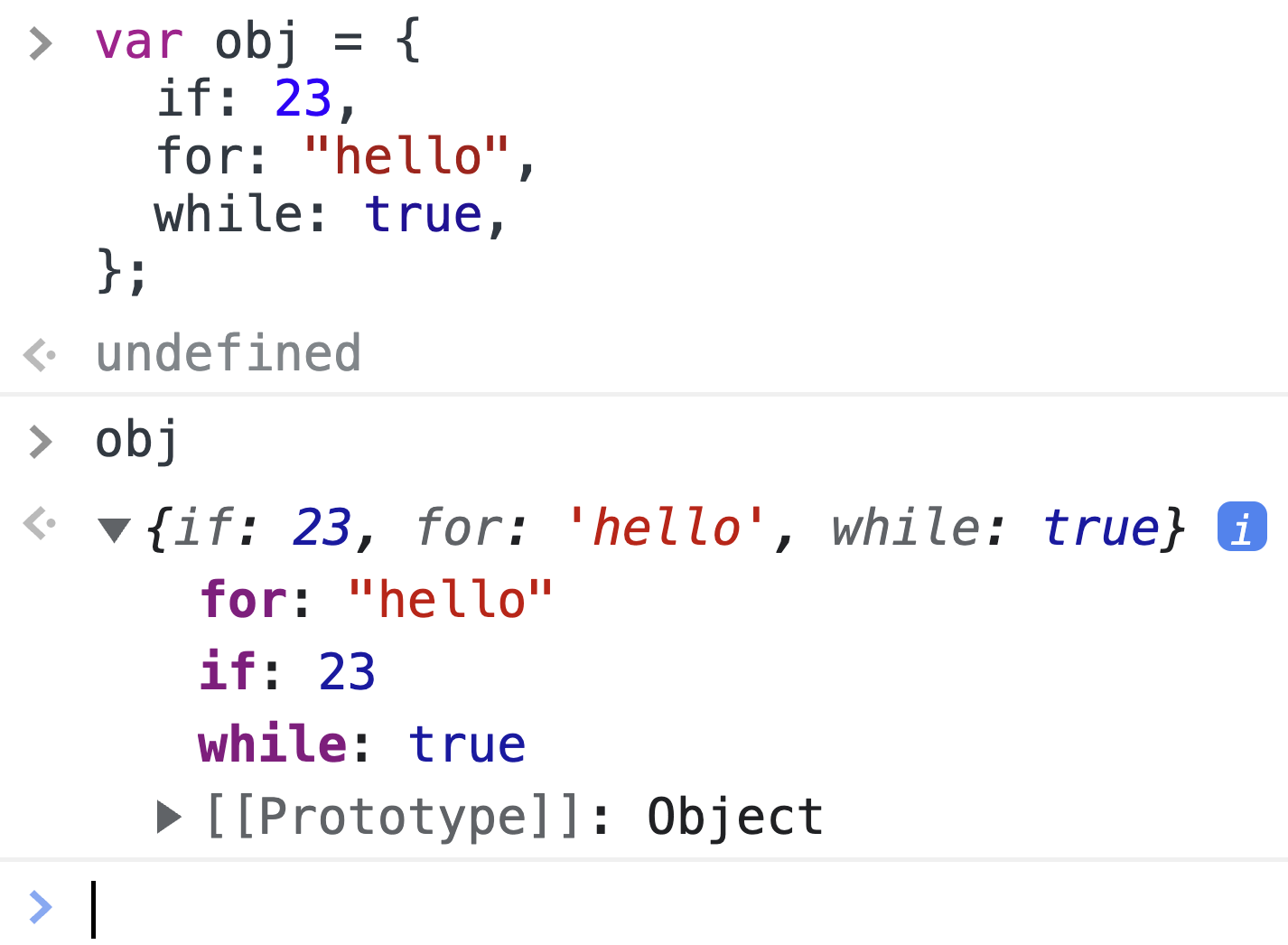Reserved Words
There are few words which are part of JavaScript language. They have specific purpose in the language. Therefore they are also code keywords.
These keywords should not be used as the names for constants, variables, functions or classes. For example: for is an example of reserved word or keyword. If we try to name a variable as for, JavaScript will throw error.
var for = 10;Above code throws Uncaught SyntaxError: Unexpected token 'for' error.

Object Properties
Syntactically, it is ok to use reserved words as properties of objects. But it is best to avoid using that.
var obj = {
if: 23,
for: "hello",
while: true,
};Even though above object has keywords as its properties, it is perfectly valid.

Backward Compatibility
Some keyword like let was introduced in ES6. So there can be old code that uses let as a variable name. So for backward compatibility, declaring a variable with name let is allowed.
var let = 10;
console.log(let); // 10So can we declare a variable using let and the variable name as let? No.
let let = 10; // SyntaxError: Unexpected reserved word 'let'.Since ES6, JavaScript engine knows the meaning of let. Therefore, it does not support variable declaration of let with let keyword. Same is the case with class. Classes were introduced in ES6. So, declaring a variable name let is not allowed inside a class.
class Car {
let let = 10; // SyntaxError: Unexpected token
}List of Reserved Words
Here is a list of keywords currently used in JavaScript:
as
const
export
get
null
target
void
async
continue
extends
if
of
this
while
await
debugger
false
import
return
throw
with
break
default
finally
in
set
true
yield
case
delete
for
instanceof
static
try
catch
do
from
let
super
typeof
class
else
function
new
switch
varHere is a list of reserved words for future use:
enum
implements
interface
package
private
protected
public